Beyond Classical Refinement
Coordinator: Kathrin Herrmann (kherrma1@jhu.edu)
Major deficiencies in scientific rigor of animal experiments have become increasingly apparent, ultimately limiting both the reproducibility and the translatability of animal experiments to human settings. Taking into consideration insurmountable interspecies differences, solely refining animal studies will not be sufficient to advance human healthcare. Consequently, CAAT’s Refinement Program critically appraises current animal use practices in science and scrutinizes both animal and non-animal models regarding their quality and validity with the goal being improvement of science in general. To help promote the utilization of systematic reviews to reduce and replace animal use in science, CAAT’s Reduction Award funds retrospective assessments of animal models (in particular systematic reviews, meta-analyses and citation analyses) as well as other means to reduce animal use in science.
Teaching at JHU
- 3rd term Course 180.637.81 Refinement of Animal Experimentation: Essential to Reduce Animal Suffering and Enhance Scientific Rigor (2 credits): This course covers the key Refinement methods necessary to carry out research in a scientifically and ethically responsible manner.
- 4th term Course 187.625.81 Animals in Research: Law, Policy, and Humane Sciences (3 credits): 8-week course that was fully revised three years ago. It prepares students to critically appraise the validity of animal models and non-animal methods to choose the best means for their specific research interests.
- 4th term Course 180.638.81 Animal Ethics (1 credit): Introduction to the principles of animal ethics with focus on nonhuman animals used in research, testing and education.
Kathrin is Faculty Co-sponsor of the Humane Sciences and Toxicology Policy Certificate. The Certificate program introduces and explains the application of the 3Rs Principles (Replacement, Reduction, and Refinement), which are the guiding principles of humane science. The Certificate also demonstrates how the use of humane science principles in biomedical research can lead to more robust scientific methodology and knowledge. The program’s course of study covers the scientific principles needed to appreciate humane, human-relevant science and to identify and evaluate its implications in biomedical research and public health policy.
Other educational activities
Co-organizer and co-host of the annual 3Rs Symposium, in collaboration with the USDA Animal Welfare Information Center (AWIC), NIH Office of Laboratory Animal Welfare (OLAW), and the Johns Hopkins Department of Molecular and Comparative Pathobiology. The recordings of the 2022 9th 3Rs Symposium can be viewed here . Past 3Rs Symposium videos can be viewed here in the Annual 3Rs Symposium section of the USDA National Agricultural Library.
Organizer and host of the bimonthly online 3R training series in German and English that started in April 2021. The webinar series provides training to scientists, competent authority members in charge of licensing projects in the EU, members of animal experimentation committees and IACUCs and animal welfare officers. The series, which is also open to the interested public, covers best practice approaches and latest advancements in the 3Rs.
In April 2021, Kathrin Herrmann started a bimonthly, free of charge 3Rs webinar series with national and international expert speakers to train scientists, competent authority members in charge of licensing projects in the EU, members of animal experimentation committees, and IACUCs and animal welfare officers. The series, which is also open to the interested public, covers best practice approaches and latest advancements in the 3Rs as well as insights into the history of animal use in research, transition science, and psychology to accelerate the much-needed paradigm change towards human-relevant, animal-free methods. Veterinarians and scientists receive educational credits, and slides and recordings are made available afterwards. The series has attracted hundreds of learners from all over the world. Recordings of the webinars are available on YouTube.
Kathrin initiated a biannual early-career scientists’ workshop on NAMs in biomedical research and she hosted the first Workshop together with Helena Hogberg, CAAT’s former Deputy Director, in November 2021. The goals are to provide the newest information on human biology-based methods and to connect early career scientist so that they can support one another in this comparatively niche area of science with animals still being the default models.
